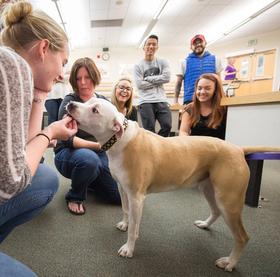For individuals seeking a life in the art of food, culinary programs provide information about chemistry, preparation, skills, and knowledge to become a professional contender in the cooking career. According to industry professionals, if you want to become a professional chef, it is critical to attend a culinary school – and one may be right in your city, at your local community college.
The Rewards of a Culinary Education
According to the Bureau of Labor Statistics, the culinary and food industry accounted for approximately 3.1 million jobs in 2004. Culinary careers are expected to grow faster than the average for all other occupations.
With a background education from culinary programs, many individuals can bypass the lower-skilled positions in a kitchen while moving more quickly up the ladder toward status as a cook or chef.
Culinary programs provide insight into the essential elements of a successful chef, such as menu planning, nutrition, health regulations, inventory management, and portion control. Also, since culinary programs tend to be hands-on, students can gain experience—and sometimes are even provided with internships—which help foster professional expertise and connections to job opportunities.
This video offers a look at the culinary arts field.
Award-Winning Culinary Programs at Community Colleges
Grand Rapids Community College, Michigan
With a stylish on-site restaurant featuring delicious menu options, Grand Rapids Community College and Heritage Restaurant have gained rave reviews and acclaim for its educational opportunities and delightful dining experience. According to The Galavanting Gourmet, Grand Rapids is “a community college program like no other - easily rivaling some of the world's best culinary schools, with world-class faculty all stars in their field.”
With eleven teaching kitchens and state-of-the-art facilities, The Galavanting Gourmet even boasts of Grand Rapids Community College being among the top ten culinary programs in the country. Offering fun electives such as ice carving, students can hone their skills in aesthetics while also working on maintaining their pesticide-free hydroponic garden, which produces ecologically friendly, organic food.
As students practice their skills in the kitchen, patrons at the on-site Heritage Restaurant are served an “elegant haute cuisine meal at a fraction of what it would cost at most fine dining establishments of its caliber. Restaurant chefs and wait staff earn credit towards a degree in culinary arts, culinary management, and baking and pastry arts.” Most notably, while the food is prepared by teaching chefs and culinary students, the restaurant is run entirely by Grand Rapids Community College Hospitality Education Program students.
With approximately 65 to 70 graduate students each year, 99% of students are hired into the workforce immediately upon graduation—and sometimes even before graduation. Students are provided with an enriching and diverse education with two-year Associate of Arts degree programs in Culinary Arts and Culinary Management and a one-year program in Baking and Pastry Arts. For more information, visit the Grand Rapids Community College website at http://www.grcc.edu/.
Kapi‘olani Community College, Hawaii
Offering an incredible culinary program accredited by The American Culinary Federation, Kapi‘olani Community College “continues its strong tradition and leadership in providing Hawaii and the world with skilled culinarians knowledgeable in Asian and Western cuisines, and state-of-the-art pastry arts.” Settled in the beautiful backdrop of Hawaii, students are provided with real-world experiences and prepared and challenged to become critical thinkers in the culinary field.
Excelling in its internationalizing food service program, Kapi‘olani aims to blend various techniques, influences, and traditions of Asia and the Pacific while also adding classes of styles of European flair. Students can learn in a full-service atmosphere with ten modern kitchens for practice and study, a 130-seat auditorium for demonstrations, and various on-site restaurants, banquet rooms, showers, lockers, and other amenities. The teaching faculty worldwide includes award-winning chefs and food and beverage experts. To find out more information, visit Kapi‘olani’s Culinary Website.
South Seattle Community College, Washington
Winning awards at various state and national competitions, South Seattle Community College Culinary Program students can learn in a highly reputable environment. Consistently earning a top ranking, The National Restaurant Association has provided rave reviews of South Seattle as an esteemed program for culinary training. In fact, since 1994, South Seattle’s culinary students have received more gold medals for cold food, pastry, and hot food categories than any other culinary school in the region. Offering Culinary Arts and Pastry programs, the on-site full-service restaurants and student dining venues allow students to learn the art of cuisine preparation through public service and exceptional event dining. Learning about theory and with real experience, students are provided with unsurpassed culinary experiences, competition venues, and guidance.
Also, South Seattle offers two food and wine education programs to deepen students’ understanding of the culinary arts. Students can enroll in the “Wine Technology Program,” where certificates of Associate and Applied Arts Degrees can be earned in winemaking, food and wine pairing, and wine marketing and sales. Or, as another option, students can enroll in the International Sommelier Guild Certification Courses. South Seattle says, “The International Sommelier Guild is the premier wine-knowledge resource center focused on helping you meet your wine and spirit needs through tailored expert teaching and consultation.” To discover more, visit South Seattle’s Culinary Website.
This video offers an overview of careers in the culinary arts field.
If you are an aspiring executive chef or want to open your restaurant, beginning your education at community college will powerfully prepare you for a culinary career – while still ensuring that you have enough money saved to invest in your professional dreams.
Questions? Contact us on Facebook. @communitycollegereview















